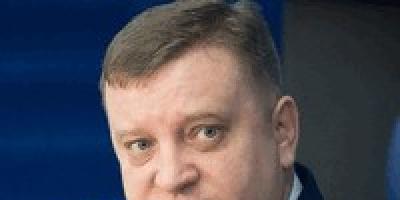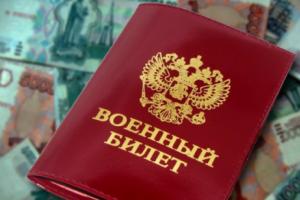With. Pichaevo, Tambov region, Russian SFSR, USSR
Russia, Russia
| External images | |
|---|---|
Alexey Vladimirovich Kondratyev- (born September 30, village of Pichaevo, Tambov region) - Member of the Federation Council Committee on Defense and Security, former head of the city of Tambov, colonel.
Biography
Received the NATO Medal for Service to Peace. Awarded two Orders of Courage, the Order of Military Merit, and the medal of the Order of Merit for the Fatherland, II degree.
Before joining the City Duma, he worked as deputy commander of military unit No. 54607.
In 2010, he topped the list of the United Russia party in the elections to the Tambov City Duma. After his election, he was elected Chairman of the City Duma.
On September 22, 2015, by a resolution of the Head of the Regional Administration, he was vested with the powers of a member of the Federation Council of the Federal Assembly of the Russian Federation - a representative from the administration of the Tambov Region.
Married, has two sons.
Write a review of the article "Kondratiev, Alexey Vladimirovich"
Notes
Links
Excerpt characterizing Kondratiev, Alexey Vladimirovich
Napoleon enters Moscow after a brilliant victory de la Moskowa; there can be no doubt about victory, since the battlefield remains with the French. The Russians retreat and give up the capital. Moscow, filled with provisions, weapons, shells and untold riches, is in the hands of Napoleon. The Russian army, twice as weak as the French, did not make a single attack attempt for a month. Napoleon's position is most brilliant. In order to fall with double forces on the remnants of the Russian army and destroy it, in order to negotiate an advantageous peace or, in case of refusal, to make a threatening move towards St. Petersburg, in order to even, in case of failure, return to Smolensk or Vilna , or stay in Moscow - in order, in a word, to maintain the brilliant position in which the French army was at that time, it would seem that no special genius is needed. To do this, it was necessary to do the simplest and easiest thing: to prevent the troops from looting, to prepare winter clothes, which would be enough in Moscow for the entire army, and to properly collect the provisions that were in Moscow for more than six months (according to French historians) for the entire army. Napoleon, this most brilliant of geniuses and who had the power to control the army, as historians say, did nothing of this.Not only did he not do any of this, but, on the contrary, he used his power to choose from all the paths of activity that presented itself to him that which was the stupidest and most destructive of all. Of all the things that Napoleon could do: winter in Moscow, go to St. Petersburg, go to Nizhny Novgorod, go back, north or south, the way that Kutuzov later went - well, whatever he could come up with, was stupider and more destructive than what he did Napoleon, that is, to remain in Moscow until October, leaving the troops to plunder the city, then, hesitating, to leave or not to leave the garrison, to leave Moscow, to approach Kutuzov, not to start a battle, to go to the right, to reach Maly Yaroslavets, again without experiencing the chance of breaking through , to go not along the road that Kutuzov took, but to go back to Mozhaisk and along the devastated Smolensk road - nothing more stupid than this, nothing more destructive for the army could be imagined, as the consequences showed. Let the most skillful strategists come up with, imagining that Napoleon’s goal was to destroy his army, come up with another series of actions that would, with the same certainty and independence from everything that the Russian troops did, would destroy the entire French army, like what Napoleon did.
The genius Napoleon did it. But to say that Napoleon destroyed his army because he wanted it, or because he was very stupid, would be just as unfair as to say that Napoleon brought his troops to Moscow because he wanted it, and because that he was very smart and brilliant.
In both cases, his personal activity, which had no more power than the personal activity of each soldier, only coincided with the laws according to which the phenomenon took place.
It is completely false (only because the consequences did not justify Napoleon’s activities) that historians present to us Napoleon’s forces as weakened in Moscow. He, just as before and after, in the 13th year, used all his skill and strength to do the best for himself and his army. Napoleon's activities during this time were no less amazing than in Egypt, Italy, Austria and Prussia. We do not know truly the extent to which Napoleon’s genius was real in Egypt, where forty centuries they looked at his greatness, because all these great exploits were described to us only by the French. We cannot correctly judge his genius in Austria and Prussia, since information about his activities there must be drawn from French and German sources; and the incomprehensible surrender of corps without battles and fortresses without siege should incline the Germans to recognize genius as the only explanation for the war that was waged in Germany. But, thank God, there is no reason for us to recognize his genius in order to hide our shame. We paid for the right to look at the matter simply and directly, and we will not give up this right.
Alexey Vladimirovich Kondratiev- (born September 30, 1971, village of Pichaevo, Tambov region) - head of the city of Tambov, colonel.
Biography
Born in the village of Pichaevo, Pichaevsky district, Tambov region. After graduating from secondary school, he studied at the Penza Military Artillery Engineering School and the Frunze Military Academy in Moscow. After graduating from military school (in 1993), he served in the Ulyanovsk Airborne Division.
From 1998 to 2010 he served in special forces units.
He served in the Chechen Republic (participated in both companies), took part in a peacekeeping operation in the territory of the Autonomous Region of Kosovo (SFRY). Has injuries. Awarded two Orders of Courage of the Russian Federation.
In 2001-2003 he studied at the Combined Arms Academy of the Armed Forces of the Russian Federation.
Received the NATO Medal for Service to Peace. He was awarded two Orders of Courage, the Order of Military Merit, and the medal of the Order of Merit for the Fatherland, II degree.
Before joining the City Duma, he worked as deputy commander of military unit No. 54607.
In 2010, he topped the list of the United Russia party in the elections to the Tambov City Duma. After his election, he was elected Chairman of the City Duma.
Since October 2010 - head of the city of Tambov.
Secretary of the Local Political Council of the local branch of the city of Tambov, Tambov regional branch of the United Russia Party. Member of the Presidium of the Regional Political Council of the Tambov regional branch of the United Russia Party.
On September 22, 2015, by a resolution of the Head of the Regional Administration, he was vested with the powers of a member of the Federation Council of the Federal Assembly of the Russian Federation - a representative from the administration of the Tambov Region.
Married, has two sons.
12.10.2018, 13:06INFLUENCE RATINGS – Senator from the Tambov region Alexey Kondratyev: “I don’t want to be great, I want to be useful”

Voronezh. 10/12/2018. website - Exclusive - Alexey Kondratyev is one of those people who gets to the very essence of everything. A real colonel who has devoted almost a quarter of a century to service in the Armed Forces, he is guided by army principles even in civilian life: he does not tolerate looseness and laxity. Whatever his activities concern - lawmaking or international relations - everything is always sorted out. “Abireg” was convinced of this during an exclusive interview for the Influence Rating of the Tambov Region.
— Alexey Vladimirovich, what are the specifics of your work in the Federation Council?
— I head the subcommittee on public security and combating illegal migration in the Federation Council Committee on Defense and Security. In addition, as a member of the parliamentary commission to ensure non-interference in the sovereignty of our country, I am engaged in countering attempts to influence the foreign and domestic policies of our state, as well as international activities. I am a member of a number of interparliamentary friendship groups - Afghanistan, Syria, Serbia, Croatia. If we talk about legislative work, all relevant laws that are submitted to the Federation Council are examined by our committee. I myself am the initiator of a number of legislative projects.
— What kind of projects are these?
— Currently, amendments to the laws “On the Police” and “On the General Principles of the Organization of Local Self-Government” are in the process of being adopted. This, in particular, gives the administrative commissions of municipalities the right to request from the police - primarily the traffic police - data on the owners of vehicles that violate parking rules. At one time, only regional authorities were granted this right. In addition, I am a co-author of an initiative to change legislation providing for social support for military personnel and police officers of the Russian Guard. I take an active part in the work of the special commission to amend the law “On Weapons”. We recently adopted an amendment allowing owners of rifled weapons to engage in reloading - reloading ammunition. Another amendment gives aviation security officers the right to carry and use stun guns. This is necessary to neutralize terrorists. You must always be proactive.
In general, in order to comply with this principle, since 2016, as a member of our committee group, I have been participating in on-site meetings, including on the territory of Ingushetia, to prepare proposals for changing legislation. Not only law enforcement, but also law enforcement practice is being studied, because it is not enough to neutralize a terrorist; it is important to ensure his re-education and reduce his influence on his cellmates to a minimum. Unfortunately, very often those convicted under articles of terrorism are engaged in recruitment, propaganda work, and subversive activities.
— And there were such real cases?
— After Nord-Ost, the militants took into account their shortcomings and applied the “new scheme” in Beslan. For example, in Dubrovka, female suicide bombers were wearing explosive devices, and under the influence of nerve gas, Alpha fighters neutralized them in the hall. In Beslan, the terrorists already had gas masks...
Speaking about whether Nur-Pashi Kulaev, the only surviving terrorist from the gang that seized the school, has been re-educated: in May he was acquitted by the Grozny court, and in August he already ended up in Beslan.
— In the Federation Council you represent the interests of the Tambov region. Does the governor give you any personal assignments?
- Enough. Together with the governor, we held a joint visit to the Tambov enterprise Spetsdopservice, where we determined new formats for legislative support for the activities of road organizations. Today we have a whole layer of problems in the area of “fools and roads,” including those of a legislative nature. For example, when constructing a road, it is necessary to carry out cadastral registration of lands, and if in this territory there are owners of all kinds of cable lines, then there is no legislative mechanism for registering these lands. The problem needs to be brought to the Federation Council. The governor gave instructions to organize a forum in the Tambov region with the involvement of legislators of the Federation Council, relevant structures and ministries, ranging from the Ministry of Construction to the Ministry of Industry and Trade. In addition, we received a delegation from the Russian Academy of Sciences, headed by its president, and conducted an inspection at the universities of our city. Tambov State Technical University demonstrated its achievements using the example of the nanotechnology department at the Komsomolets plant, one of the leading factories in our region where nanofibers are being developed. At the Michurinsk State Agrarian University we visited experimental farms, looked at new technologies for greenhouse production with all the capabilities of biotechnology and genetics - the one that allows us to select our Russian varieties. This is not GMO.
Of course, we protect interests and jointly promote the best Tambov projects under the leadership of the governor. For example, our “Michurinskaya Valley” - a project to create an innovative scientific center in the region. This is important for our country.
— Not only for the Tambov region?
- Not only. In our country, it is impossible to compare the economic capabilities of regions: we live in different time zones, different latitudes, and different climatic conditions. The Tambov region is a zone of risky farming; we are not the Krasnodar region or the Rostov region. But we have our own “zest” - fruit and vegetable farming, this is a special sector of the economy and it requires close attention.
Let me give you a simple example - sanctions against the Russian Federation. Essentially, what were we punished for? If we speak within the framework of the WTO, then this is a violation of the rules of the World Trade Organization, which is why Polish apples disappeared from our market - and thank God! I think this is correct and quite timely. We must grow our own apples, pears, and plums. To do this, it is necessary to resolve the issue of selection of the most promising species. As part of scientific research, we are trying to create such a potential for selective work that would ensure the interests of all regions of the country.
— Regions compete with each other for federal money. Have you ever had to lobby the interests of the Tambov region in terms of raising funds?
— Any senator is sent to the Federation Council to lobby the interests of his region. For me, the Tambov region is not just the place where I live, it is my homeland in the broadest sense. But the tasks are not limited only to the territory. The interests of territories, regions, and republics are subordinated to the interests of the state. In particular, when you have to come up with a potential proposal: for example, as part of subsidizing business activities in the agricultural sector, problems arise due to changes in lending legislation. We are trying to solve them.
—Are you talking about preferential lending?
- Certainly. You see, we speak the same language, but there are different points of view: regions, manufacturers, the Ministry of Agriculture, the banking community. Everyone has their own understanding of the process. Our task is to optimize the risks and development of the manufacturer.
— What problems in our region require a priority solution, including with your help?
— Of course, there are problems in the Tambov region, as in other regions. I will not be mistaken if I say that today one of the most pressing issues is the housing and communal services sector. The housing and communal services reform of 1996 went like this: everything that was worn out went to the city economy, municipalities, and this is not only the city level. These are rural areas, township and village councils, regional centers, small towns - and this process involves a lot of structures that are not involved in either production or regulation.
-Are they just collecting money?
— In fact, they are engaged in intermediary services at the level of speculative farming, without investing either in the development of production or in maintaining the production base and infrastructure. People squeeze everything out of this area, shifting their costs to the consumer, ordinary citizens. This poses a huge problem.
— With all this, how would you characterize the socio-economic development of the region?
“It remains a very stable region.” And this is the main merit of the administration of the Tambov region and Alexander Nikitin personally. From an economic point of view, in a number of indicators we exceed growth parameters in the Russian Federation as a whole. And the assessment given by the government and the president to the economic development of the region is quite high.
— This year, the regional Duma adopted the Strategy for the socio-economic development of the Tambov region until 2035. If we take the main theses of this strategy, we can conclude that we will take a radically new path. Our economy is moving to the industrial stages of development. Is Tambov industry ready for this?
— The main production base is related to agriculture. Understanding this, we are trying to build up livestock production and processing of these products. We have already built one large meat processing plant, now there is a question about building another one - on the territory of Michurinsk.
— By analogy with the meat processing industry in Streltsy?
— Yes, the second complex will begin to be built in the near future. We are building up our potential and striving to have production registered with us. For example, large investors, such as Vadim Moshkovich's Rusagro Group of Companies, finance projects in the region, in particular, the sugar plant of the Russian Sugar company. We understand that in the era of post-industrial development of the country, the region must be industrial, so we try to use the resources that we have. Now there is a question regarding the zirconium deposit. It is necessary to attract investors who are able to make correct calculations, organize the extraction of these rare earth materials so that it is environmentally safe, and their transportation to processing sites. Negotiations are already underway. The President is aware, so we continue to work in this direction.
— There are still a large number of enterprises in Tambov that are tied specifically to defense production. For some, unfortunately, the situation is quite sad.
— Last year we invited Deputy Minister, and now Deputy Prime Minister of the Government, Yuri Borisov. The state defense order was extended, a new contract format was implemented with a number of enterprises for new products, and an agreement was reached on larger financing. All this allows us to make optimistic forecasts.
I met with the head of the so-called Tambov cluster in the field of defense enterprises, Mikhail Kondratyev. We agreed that an appeal would be prepared with a list of problematic issues. In the near future, we will raise them with the leadership of the Ministry of Defense or with the department of the Ministry of Defense of the Russian Federation for ensuring state defense orders. If necessary, we will reach the level of Yuri Borisov - there are certain developments and proposals that should help.
As an example, I would like to say that the situation has changed at the Tambov carriage repair plant, which today, just like the Voronezh one, is loaded with orders. The situation changed dramatically thanks to the governor, who personally met with the head of Russian Railways, Oleg Belozerov.
— How long have you been in our region and how aware are you of local problems?
— I’ll say it without pathos. I’m practically never at home, but my family lives here in Tambov. My wife serves, my children study, I haven’t taken them anywhere. So that you understand: I worked for three days in Moscow, before that I was in Tambov, before that in St. Petersburg, before that in Belgrade, before that in Zagreb, and so on all the way to the island of Alexandra Land in the Franz Josef Land archipelago. I travel all over the globe, I don’t sit in Moscow, I go to the region at the first opportunity. I work on the tasks of the governor, attend public events, meet people.
- Keep abreast of all events.
- I have to know about everything. At one time, I came to the Federation Council, met with the then chairman of the defense committee, Viktor Ozerov, and he asked: “How will you work?” I think: “What does this mean?” He continues: “There are people who work only in the region and come to Moscow for meetings. There are people who work only in Moscow and do not have time to travel to the region. There are those who have time both here and there.” In the end, I answered that I came to work, I have no business, no selfish goals, no secondary tasks, no selfish interest, I will keep up.
— You were the head of the city of Tambov for five years. Assess the current state of the city. How much has he changed?
— People should evaluate the activities of the current administration and the City Duma. It would be incorrect on my part. Everyone has their own skeleton in their closet. Instead of talking bad things about each other, it is better to lend a shoulder and achieve high results together. One head of the city came and built roads, another came and built new schools and kindergartens.
— You devoted more than 25 years of your life to serving in the Armed Forces. What does the army mean to you and how did it influence your development?
“Even at school, my company commander was a very pedantic person. And I became the same. My wife once asked where I learned order - from my parents or in the army. Of course, in the army! Although parents also took this issue seriously. Service in intelligence gives you the ability to sort everything out: everything should be clear and understandable. I don't like looseness and slackness. For me, the army, first of all, is the ability to work in an organized manner, perseverance in achieving goals: if you set a task, you need to achieve results. And, of course, the ability to take a punch.
Although, of course, there are things that are impossible to get used to. This is the death of friends. Always looking for your mistake: what did you do or didn’t do, why did people die? You understand that there are no wars without losses, but the professionalism of a commander lies precisely in minimizing losses. Therefore, in civilian life, you try to calculate everything two or three steps ahead: what will happen after the decision you make, what will be the results?
- You have two sons. Would you like them to follow in your footsteps?
— When my eldest son graduated from school, I insisted that he enter the Ryazan Airborne School. He began to put pressure on me with authority! But, as a friend told me: “You know how this can end. If so, which elbow will you bite?” As a father, I gave my son the opportunity to determine his own destiny, just as my parents did for me. Although, in fact, it is the parents who often feel what their child needs. My mother wanted me to become a historian, but it didn’t work out. And I still sometimes blame myself for not being able to work in this direction. When you talk to your sons, you understand that children respect their parents, but choose what interests them.
— Are you considering the possibility of continuing your career in the Tambov region?
— I’m already in the Tambov region. If fate turns out to be such that I need to end my government activities, I am quite ready. I am already a pensioner, I will retire.
- What about ambitions?
— Ambitions, if they are supported by specific ideas, if they can be transformed into serious results, then this is useful. Everything else is pride and self-praise. I know a lot of people who considered themselves great, but as a result - nothing. I don't want to be great, I want to be useful. I like what I do, what I do in lawmaking. The protection and preservation of our state brings me great pleasure. I am ready to travel and take risks for this - to Syria, Afghanistan, other hot spots, no matter how trivial it may sound. The risk of a soldier is one thing, the risk of a legislator is another. If here, in the region, I was able to help someone, I think that I have not lived in vain. I showed myself, people, and our state what I am capable of. Appearing to be more than you really are is wrong. You must understand: if you want to reach certain heights, be ready to sacrifice your family, personal time, and health. And ultimately bear responsibility for everything. If failure happens, look for mistakes in yourself.
— Is it true that you are fluent in several foreign languages?
- This is said loudly. We have native speakers, and not all of them speak it perfectly. Once, at a meeting on the implementation of programs for patriotic education of citizens with Rosmolodezh, I expressed dissatisfaction with the fact that our wording was taken from the English language. Question: are our values or English ones? What is a “quest”? Can't you call this a game? The Russian language has quite a lot of antonyms and synonyms - the language is very rich. Compare: we have six cases, they have only two. When they talk about English, I ask: “Why are you studying it?”
— What languages do you know?
— German, English, Serbian. I can speak Chechen. Serbian and Croatian are almost identical languages, in fact one and the same. Experts share them, but nevertheless, I don’t need a translator in Croatia. I can speak Farsi. But you need to constantly practice, otherwise your skills will be lost.
— In general, you did not become a historian by profession, but you are a historian in life, in your soul.
— History is a very exact science. When talking about NATO, you need to understand the history of the process, it constantly repeats itself. When created, NATO had the task of dismembering the USSR into the Middle Volga Republic, reducing its territory to the Moscow principality. At one time, our president, at a meeting with Bill Clinton, handed him documents indicating the actions of American intelligence officers on Russian territory. The Americans made a surprised face. And when our president proposed that Russia should join NATO, everyone became very nervous, since the meaning was immediately lost. Today, this organization is working to surround us with a tight ring.
- So we can say that it exists only because we exist?
- Let's say, not only us. It is necessary to understand where and in what regions NATO takes part in combat operations. There is a task of undivided hegemonic influence on the entire region, on the entire world political and socio-economic system. But even within NATO there are disagreements. Our task is to take advantage of this, split them and neutralize them.
Member of the Presidium of the Constitutional Court of the National Security Council of Russia, Deputy Chairman of the Committee on Defense and Security of the Federation Council of the Russian Federation, representative from the executive body of state power of the Tambov region from September 23, 2015
Member of the Presidium of the Coordination Council of the Non-State Security Sphere of Russia www.ksnsb.ru
Co-Chairman of the Editorial Council of the National Media Portal “Khanitel”
Expert on:
Geopolitics and foreign policy areas of activity: Syria, America, Crimea, Ukraine, Korea, Georgia, Caucasus, Libya, Donbass, Afghanistan;
Terrorism and the fight against it, international politics, military-patriotic education, military cooperation, patriotism, democracy, defense and security, information security, child safety at school and other areas of public safety.
State awards
1998 - Order of Courage;
2005 - medal of the Order of Merit for the Fatherland, II degree (with the image of swords);
2005 - Order of Military Merit;
2008 - Order of Courage
2017 - Order of Honor
Biography
Born on September 30, 1971 in the village of Pichaevo, Pichaevsky district, Tambov region. After graduating from secondary school, he studied at the Penza Military Artillery Engineering School and the Frunze Military Academy in Moscow. In 1993, he served in the Ulyanovsk Airborne Division. From 1998 to 2010 he served in special forces units. He served in the Chechen Republic (participated in both companies), took part in a peacekeeping operation in the territory of the Autonomous Region of Kosovo (SFRY). Has injuries. In 2001-2003 he studied at the Combined Arms Academy of the Armed Forces of the Russian Federation. Received the NATO Medal for Service to Peace. He was awarded two Orders of Courage, the Order of Military Merit, and the medal of the Order of Merit for the Fatherland, II degree.
Before joining the City Duma, he worked as deputy commander of military unit No. 54607. In 2010, he headed the list of the United Russia party in the elections to the Tambov City Duma.
After his election, he was elected Chairman of the City Duma. Since October 2010 - head of the city of Tambov. On September 23, 2015, he was appointed to the position of senator from the Tambov region. In 2016 he graduated from Tambov State Institute named after. G.R.Derzhavina (Master)
Secretary of the Local Political Council of the local branch of the city of Tambov, Tambov regional branch of the United Russia Party. Member of the Presidium of the Regional Political Council of the Tambov regional branch of the United Russia Party.
Chairman of the Security Subcommittee of the Defense and Security Committee of the Federation Council of the Federal Assembly of the Russian Federation.
The responsibility of the Security Subcommittee includes:
internal and external security of the Russian Federation;
consideration of acts on the introduction of a state of emergency;
preliminary consideration of the issue of appointment and dismissal of the Prosecutor General of the Russian Federation and his deputies;
ensuring the organization of law enforcement agencies and federal executive authorities that are part of the system of forces and means of ensuring the security of the Russian Federation, as well as those performing law enforcement functions (special bodies), including in the main areas of their activities:
combating terrorism and crime, ensuring intelligence, counterintelligence, border and information security;
protection of the individual, society, and state from illegal attacks;
preventing and suppressing crimes and administrative offenses, identifying and solving crimes, searching for persons;
proceedings in cases of administrative offenses, execution of administrative penalties;
ensuring law and order in public places, road safety, control in the field of arms trafficking, control in the field of private detective (detective) and security activities, protection of property and facilities;
state protection of victims, witnesses and other participants in criminal proceedings, judges, prosecutors, investigators, officials of law enforcement and regulatory authorities, as well as other protected persons;
carrying out registration of citizens of the Russian Federation at the place of stay and place of residence within the Russian Federation and monitoring compliance by citizens and officials with the rules for registration and deregistration of citizens of the Russian Federation;
registration and issuance of documents to foreign citizens and stateless persons for entry into the Russian Federation, residence and temporary stay in the Russian Federation;
control over compliance by foreign citizens and stateless persons with the established rules of residence and temporary stay in the Russian Federation;
carrying out migration registration of foreign citizens and stateless persons in the Russian Federation;
implementation of measures to prevent and suppress illegal migration;
control over the circulation of narcotic drugs, psychotropic substances and their precursors and implementation of measures to counter their illicit trafficking;
detection, prevention, suppression, disclosure and preliminary investigation of crimes, as well as the implementation of proceedings in cases of administrative offenses, which are classified by the legislation of the Russian Federation, respectively, under the jurisdiction or competence of the authorities for control of the circulation of narcotic drugs and psychotropic substances;
coordination of the activities of federal executive authorities, executive authorities of constituent entities of the Russian Federation and local governments in the field of trafficking in narcotic drugs, psychotropic substances and their precursors, as well as in the field of combating their illicit trafficking;
implementation, in accordance with international treaties of the Russian Federation, of interaction and information exchange with international organizations and competent authorities of foreign states in the field of combating illicit trafficking in narcotic drugs, psychotropic substances and their precursors, as well as representing the interests of the Russian Federation on issues of combating illicit trafficking in narcotic drugs, psychotropic substances and their precursors in international organizations;
execution of criminal penalties, detention of persons suspected or accused of committing crimes, and defendants;
ensuring law and order and legality in institutions executing criminal penalties in the form of imprisonment and in pre-trial detention centers, ensuring the safety of employees of the penal system, officials and citizens located in the territories of these institutions and pre-trial detention centers;
protection and escort of convicted persons and persons in custody along established escort routes, escort of citizens of the Russian Federation and stateless persons to the territory of the Russian Federation, as well as foreign citizens and stateless persons in the event of their extradition;
security of specialized psychiatric hospitals (hospitals) with intensive supervision.
Among the senators in the Russian parliament you can find a lot of people with a rich and colorful biography. We present one of them in our article. This man has a wealth of experience in the army and in the political life of the country. His name is Alexey Vladimirovich Kondratyev, and he is a native of the Tambov region. He has repeatedly participated in television programs dedicated to political events in our country and abroad.
Biographical information
Alexey Kondratyev was born in the village of Pichaevo. Since childhood, I dreamed of becoming a military man, and therefore from an early age I collected army badges, soldier’s caps and berets. After receiving a certificate of secondary education, he entered the Penza Military School, where he studied to become a mechanical engineer. Later he increased the level of education at the capital's Academy. Frunze.
Since 1993, he served in the airborne forces, and from 1998 to 2010 - in special forces units.
He took part in both Chechen military campaigns, as well as in the peacekeeping operation in Kosovo. In battles he was repeatedly wounded.
He has been awarded many domestic orders and medals, and has awards from foreign countries, including the NATO Medal “For Service to Peace.”
At the beginning of the two thousandth he studied at the Combined Arms Academy.

Before joining the civil service, he worked as deputy regiment commander.
In 2010, he became number one on the United Russia list in the elections to the Tambov city council. After his election, he headed the legislative body, and at the end of the year he was appointed to the post of city mayor of Tambov.
In the fall of 2015, he was vested with the powers of a senator from the Tambov region in the Federation Council.
Polyglot, speaks English, German, Serbo-Croatian, Farsi.
He is interested in martial arts and hunting.
In 2018, he supported raising the retirement age.
She is married and has two sons.
According to Kondratiev
- The army is a team where all the qualities of a person are easily identified, by which one can understand what he is capable of. Can he stand up for himself, help a friend, support him when it’s hard for him. The army provides for the precise fulfillment of assigned tasks by each military personnel. The peculiarity of army life is such that you won’t be able to worry about your grievances separately from everyone else; one way or another you will have to find a common language with your fellow soldiers. The army teaches you to remain human in the most difficult situations.
- It is not enough to simply neutralize a terrorist; it is important to re-educate him and reduce his influence on his immediate environment. Unfortunately, many people convicted of terrorism begin to recruit agents, engage in propaganda and subversive activities.
- Each of the senators in the Federation Council tries to promote the interests of the region where he was elected. However, the tasks are not limited exclusively to the assigned territory. The interests of the small homeland must be subordinate to the interests of the state.
- It is important for a senator not to be great, but to be as useful as possible to people.

- For many years, the NATO bloc planned to dismember the Soviet Union into small pieces, and it succeeded. Now the task is to reduce the territory of Russia to the Moscow principality. And everything possible must be done to prevent such a scenario from happening. Once upon a time, at a meeting with the head of the White House, the Russian president handed over documents about the actions of American spies in Russia. The Americans pretended to be very surprised. And they became very nervous about the proposal to admit Russia to NATO, because there was no point in it. And now this organization surrounds us with a tight ring.
- An official must at least monthly visit his region from which he was nominated, to study all the painful points: emergency housing, problems with issuing salaries, etc. And try to resolve questions without delay, and not talk about them and delay time.
- Even within NATO there are divisions. Our task is to use this as effectively as possible.
- As soon as Crimea became part of the Russian Federation, NATO started talking about compensating Crimea with the Kaliningrad region. An information war began and the instillation of pan-German sentiments there.
- Russia has repeatedly proposed that the North Atlantic Alliance return to joint interaction and discuss important issues, including the reduction of conventional and strategic nuclear weapons in Europe. However, in response, NATO is moving closer and closer to our borders, and in recent years Russia has not increased its weapons or strengthened its presence on the borders of NATO countries.
- Information influence is a very effective method of using soft power. Today, those who have information actively apply it or work proactively, which, in turn, affects the politics and moral situation in the country.








